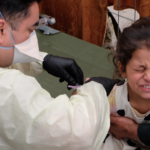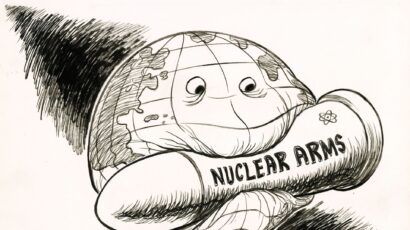Will the UN sanction Syria over chemical weapons?
By Andrew Ivers | October 27, 2016
In the wake of a new report accusing the Syrian military of a third chemical-weapons attack, Britain and France are now calling for UN sanctions against the government forces responsible, according to recent reporting from Reuters. The latest accusations say Syrian forces used toxic gas in the village of Qmenas in March of last year.
The findings are the fourth report of a joint inquiry by the United Nations and the Organization for the Prohibition of Chemical Weapons, the inspection agency of the 1997 Chemical Weapons Convention, which Syria joined in 2013 after the infamous sarin attacks in the suburbs of Damascus. The UN established the probe in August 2015 to investigate nine incidents believed to involve chemical weapons. A year later, in its third report, the inquiry fingered the Syrian military for two barrel-bomb chlorine attacks, in Talmenes in April 2014 and in Sarmin in March 2015. It also accused Islamic State militants of using mustard gas. Based on the victims’ symptoms, chlorine was likely used in the Qmenas attack as well.
The inquiry’s reports have identified specific military units of carrying out the chemical strikes and stated that persons “with effective control in the military units … must be held accountable.”
The UN Security Council is expected to debate the issue today. When it comes to the votes of the five veto-holding nations sitting on the 15-member body, Russia and China are likely to line up against the United States, Britain, and France. Russia is considered an ally of the Syrian regime and said of the inquiry’s third report that “the conclusions could not be used to impost UN sanctions.”
Readers looking for more on the story should check out Amy Smithson’s excellent Bulletin article from last month, “Chemical weapons in Syria: Will there be justice for a serial offender?”
Publication Name: Reuters
To read what we're reading, click here
Together, we make the world safer.
The Bulletin elevates expert voices above the noise. But as an independent nonprofit organization, our operations depend on the support of readers like you. Help us continue to deliver quality journalism that holds leaders accountable. Your support of our work at any level is important. In return, we promise our coverage will be understandable, influential, vigilant, solution-oriented, and fair-minded. Together we can make a difference.
Topics: Biosecurity, Special Topics, What We’re Reading















